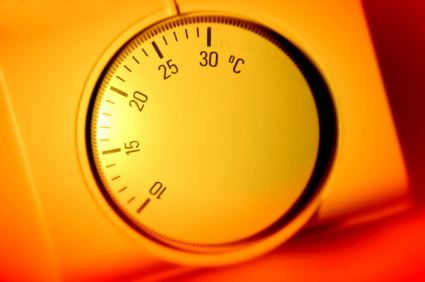I have recently been in touch with The Energy Saving Trust and they state that keeping the heating on all the time will increase the cost of heating. They were unable to give me their sources, or any figures to substantiate their opinions. Are you able to do so?
I have had several other readers’ letters asking a similar question. It seems that the Energy Saving Trust’s advice has recently been added to the popular MoneySavingExpert.com website, which might have led to this heightened level of debate. Even there, however, the Energy Saving Trust does not quote or reference any published sources.
The Energy Saving Trust (EST) is a registered charity, although the vast bulk of its £122 million annual funding comes direct from government, chiefly the Department for Energy and Climate Change. The EST claims to carry out “impartial research”, and offer “independent advice”, but it appears to me that its views are heavily influenced by the climate-change lobby and the insulation industry.
In other words, the EST supports the idea that the world is threatened by man-made climate change, and that this can be reversed by reducing mankind’s energy consumption.
The idea that the best way to save fuel is by making your home cooler is a favourite tenet of the green movement. In my opinion this is not based on scientific principles, but stems, rather, from their “hair shirt” ideology, that because mankind is responsible for catastrophic global warming, we should all be punished by making ourselves uncomfortable.
As you have pointed out, however, the EST is unable to cite any independent scientific evidence to support this theory, because there isn’t any.
Climate-change evangelists like to quote Fourier’s Law of heat conduction to support their views. Fourier’s Law explains that the rate of heat loss through a material is proportional to the temperature difference across it. In other words, the warmer it is on one side of a wall, the faster the heat will escape to the colder side. This is the basis for the – rather simplistic – government advice that if you turn your room thermostat down by one degree, then you can save “up to 10 percent” in energy and money. And if you use the timer to turn your heating off completely, they say, then you will save even more energy and even more money.
Joseph Fourier was right in principle, of course, but heat conduction is only one part of the story. Fourier’s experiments were carried out using laboratory models, and it is just too simplistic to apply his law to real buildings. What is missing from the whole equation is relative humidity and dew-point, and the fact that when a home’s heating is turned down or off, more condensation will occur within the depth of the walls. This condensed moisture will actually conduct heat from inside to outside, in the same way that wearing a wet jumper makes you colder than wearing a dry jumper.
Dry brickwork has a higher thermal insulation value than damp brickwork. It also has a much higher insulation value than government figures would have us believe. Research by the Society for the Protection of Ancient Buildings and Portsmouth University has found that the measured insulation values of actual walls are up to 73 percent higher than those predicted by conventional “U-value” calculations.
Hence my advice that in cold weather, rather than run your central heating for two hours in the morning and six in the evening, it is better to keep it on the “24 hour” setting, but running at a low boiler temperature. Turn all your thermostatic radiator valves to the highest number, or “max”, and turn the boiler thermostat down to 1, or “min”. The room thermostat can be at whatever temperature you find comfortable – I’d suggest 19C or 20C during the day, and perhaps down to 16C at night, but you can make your own choices. This advice is offered for its guiding principles, not as rigid instructions.
Some 160 readers have so far reported back, saying that their fuel consumption has gone down since adopting this regime. Only four have said their consumption has risen. Two of these had no room thermostat, which is essential for the method to work. And the other two had not draught-proofed their doors and windows, which again is a prerequisite.

